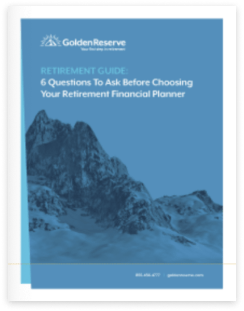Debunking the Retirement Myth: You Don’t Need 2 Million Dollars
Feeling that nagging doubt about your retirement savings? You’re not alone. A recent study found just 49%…

Taking Action at These Junctures Can Pay Off When It Matters Most
The word “taxes” sparks fear in many people. After years of paying them, you’d think they’d cause less anxiety. Yet, for retirees, being on a fixed income only heightens the angst. Thankfully, there are a few opportunities to lower what you’ll pay in the future. But you have to know when to act.
Before Retirement
Lowering your taxes for retirement starts before you retire. There are a number of tax-saving vehicles and long-term investments to consider early on. As with any investment, there’s no one-size-fits-all solution. That’s why it’s prudent to evaluate your options with a retirement planner.
One such option your planner may recommend is contributing to a tax-advantaged account, such as a Roth IRA or a Roth 401K. While your contributions won’t be tax-deductible, you’ll reap the benefit down the line in the form of tax-free withdrawals which can reduce your total taxable income in retirement.
And don’t forget about municipal bonds, which fund local infrastructure projects like the construction of schools and highways. Municipal bonds can be appealing because they fluctuate less than stocks. But the big draw is that they’re typically exempt from both state and federal income tax, giving you tax-free interest income for retirement.
When You Elect Social Security
Your social security elections can play a major role in your total taxable income too, which is why it’s important to elect wisely. If you are eligible, you may not want to take social security right away. Here’s why.
Based on current tax laws, 50–85% of your benefits could be taxed depending on your combined gross income. The threshold for taxation is lower than most people realize:
Up to 50% of social security income is taxable for couples filing jointly with a combined gross income of $25,000 or more. For individuals, it’s $32,000 or more.
Up to 85% of social security income is taxable for couples filing jointly with a combined gross income of $44,000 or more. For individuals, it’s $34,000 or more.
This is important because the more taxable income you have, the higher tax rates you will pay.
Remember, your required minimum distributions from qualified retirement accounts are included in your combined gross income. However, distributions from Roth accounts aren’t taxable, which can give you valuable flexibility in minimizing the taxes you pay on your social security benefits. Working with a retirement planner, you can craft a plan for which accounts to draw down first, and when to take social security in the broader scheme of that plan, to ensure that you’re keeping more of your money.
Your Tax Draw Strategy
Social security elections aren’t the only reason you’ll want a draw strategy. Having one could also lower tax rates for a surviving spouse, adult children, or other beneficiaries. We’re referring to the widow’s and kiddo’s penalties. The widow’s penalty occurs when one spouse passes away, and as a result the surviving spouse must begin paying taxes at the higher single rate, as opposed to the more favorable married filing jointly status. The kiddo’s penalty refers to the higher tax rate your heirs may pay on their inheritance because they tend to be in a higher tax bracket than the one you enjoy in your retirement.
To combat both of these scenarios, your retirement planner may recommend either taking an early distribution from your IRA or one that is larger than required. Doing so will allow you to pay taxes on the money at your lower married filing jointly rate, which will protect your spouse and heirs from potentially paying more down the line.
If these three strategies are news to you, you’re not alone. Many financial advisors are reluctant to talk about tax planning for obvious reasons — they’re not tax professionals. While that’s a fair point, retirement planning and tax planning go hand in hand. Achieving that synergy is difficult when your financial advisor and CPA aren’t under the same roof. At Golden Reserve, we’ve solved that problem by having an affiliated CPA firm and experienced retirement planners working together to develop the right strategy for you. Set up a consultation to see how our team approach makes a difference.

Share this article
Feeling that nagging doubt about your retirement savings? You’re not alone. A recent study found just 49%…
“When should you start taking Social Security?” ranks among the top questions researched by retirees. Social Security…
Retirement is a time to relax and enjoy the fruits of your labor. But how do you…
Ever wondered how much your financial advisor is really pocketing from your retirement nest egg? Are you…